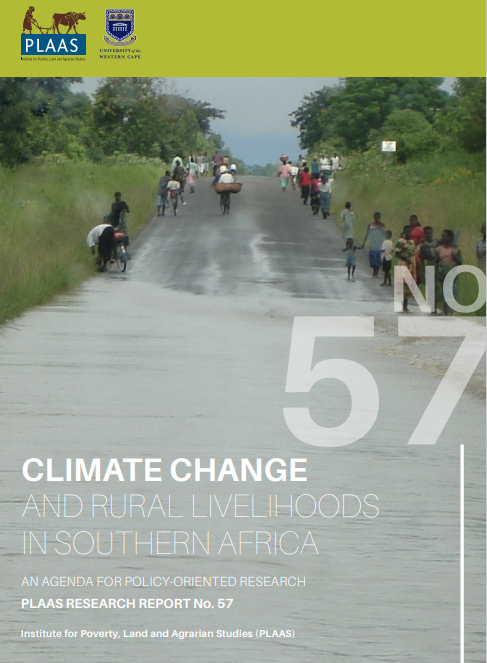Climate Change and Rural Livelihoods in South Africa
An Agenda for Policy-Oriented Research

01 November 2022
Institute for Poverty, Land and Agrarian Studies, University of the Western Cape
English
Research report
Africa
Climate change, caused primarily by greenhouse gas emissions (GHGs) from the burning of fossil fuels, has come to be considered the most urgent crisis facing humanity, and intersects with multiple other social, economic, and political crises. Between November 2021 and April 2022, the Intergovernmental Panel on Climate Change (IPCC) released the three parts of their 6th Assessment Report on the latest science of climate change. The report confirmed the severity of the climate crisis, the lack of political action and will over the last few decades in lowering emissions, and the need to drastically reduce emissions in the next few years, to have any chance of maintaining global warming to somewhere in the region of 1.5°C above pre-industrial levels (Harvey, 2022). Southern Africa – rural areas in particular – is acutely vulnerable to the impacts of climate change, posing urgent questions about the relationship between climate change and responses to it, rural populations, and agrarian change in the region. This discussion paper aims to provide a critical, grounded analysis of the distributional politics, political economy, and political ecology of climate change and responses in Southern Africa, particularly as it relates to land-based livelihoods and the issues faced by marginalised and vulnerable populations created by landlessness.
The paper shows that prominent responses to the climate crisis relevant to Southern African rural landscapes and livelihoods are shaped by dynamics between global governance, capital accumulation imperatives, and real political contestation at various levels. A key theme in the paper, emerging from a review of the literature, is therefore the role of inequality and prevailing distributional patterns between national, local, and global levels in shaping the course and impacts of climate change and responses. It also highlights how these impacts are shaped by the context of multiple inequalities and power relations, and how the agency of different actors is exercised at varying scales in contingent and contextual ways to shape responses and impacts.
Abstract based directly on original source.


Comments